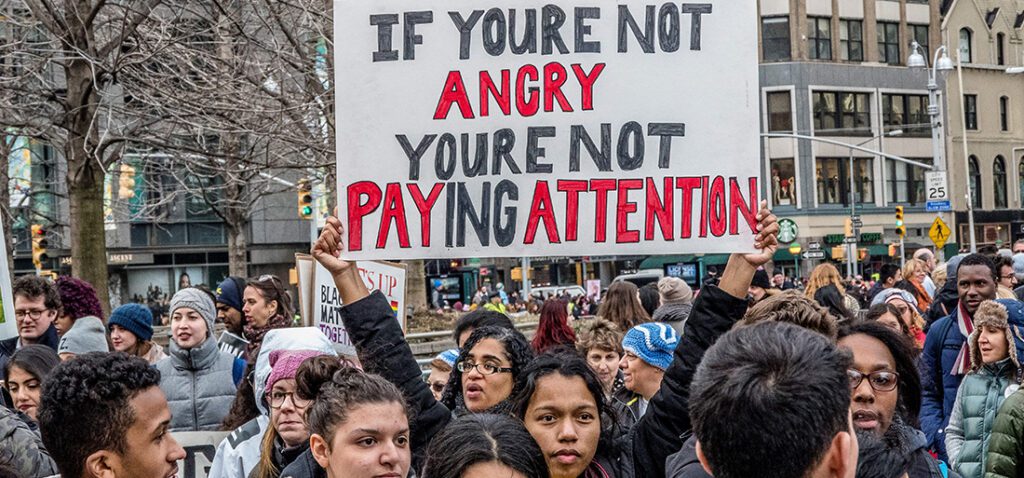The MAGA Movement and Its Impact on Women’s Rights
The MAGA (Make America Great Again) movement tends to glorify a nostalgic version of America’s past, often portraying an idealized time that does not accurately reflect historical truths. This romanticized view serves as an effective political instrument, tapping into voters’ emotions and their yearning for a time when straight, White, Christian men held supremacy. This context makes it unsurprising that the movement’s positions on women’s rights have generated significant controversy, especially in light of recent political developments.
Increase in Threats to Women’s Rights
The election of Donald Trump has ignited a troubling rise in attacks on women’s rights and autonomy throughout the United States. This trend manifests both in online discourse and in real-life actions, showcasing a broader agenda among MAGA Republicans aimed at reversing hard-fought protections for women. Reports have surfaced of MAGA supporters advocating extreme ideas around gender violence and dismissing feminism as a quest for “more power than men.”
Voting Rights in Jeopardy
Conservative commentators affiliated with the MAGA movement have expressed fears regarding women’s participation in voting, with some calling for the revocation of women’s voting rights or even male-only voting systems. This apprehension illustrates a deeper unease within the movement regarding women’s political autonomy and influence.
Restrictions on Reproductive Rights
The MAGA movement has been closely linked to efforts aimed at limiting abortion rights. President-elect Donald Trump is credited with nominating Supreme Court justices who voted to overturn Roe v. Wade, raising concerns that a potential second term for Trump could result in even greater restrictions on reproductive rights across the nation.
The Push for Traditional Gender Roles
Many MAGA supporters advocate for a return to conventional gender roles, suggesting that women should be submissive to their husbands in political matters. This focus on traditional values raises concerns about the impact on women’s status, often relegating them to roles centered around home and family, rather than acknowledging their professional aspirations.
This perspective fosters the idea that women should primarily be homemakers, rather than recognizing their contributions as career professionals. The “tradwives” movement, which promotes traditional roles for women, adds to these troubling trends within conservative circles.
Though the MAGA movement may not explicitly oppose women having careers, many of its ideological positions and policies are criticized for potentially hampering women’s professional growth.
Focus on Male-Dominated Industries
The MAGA agenda often centers around traditionally male-dominated sectors, like manufacturing, which can lead to overlooking areas where women thrive professionally.
Impacts on Women’s Healthcare
Actions taken by MAGA Republicans could severely affect women’s healthcare, extending far beyond the issue of abortion. Proposed Medicaid cuts from the Republican Study Committee would disproportionately impact women, particularly women of color. Additionally, the previous administration’s regulations pushed Planned Parenthood out of the Title X program, resulting in a massive funding loss for reproductive health services for low-income women. Continuing efforts to undermine the Affordable Care Act also threaten women’s access to essential health services, including contraception.
The Rise of Misogyny and Online Harassment
Following Trump’s election, there has been a notable uptick in misogynistic content across online platforms, including threats and derogatory remarks aimed at women. The mocking of women’s autonomy through slogans like “Your body, my choice” raises concerns that such a hostile environment may deter women from pursuing political office, as they fear harassment and unfounded accusations related to their gender.
Statements of Outrage
At Texas State University, following Trump’s victory, activists brandished signs proclaiming “Women are property” and “Homo sex is sin,” signaling a disturbing sentiment among certain MAGA supporters.
While not every MAGA supporter subscribes to these views, numerous ideological stances and rhetorical patterns have raised alarms about their implications for women’s rights.
The Countermovement: Women Rising
The 2024 election cycle has underscored a significant gender gap in political preferences, with women supporting Kamala Harris by a 53-47% margin, and an even wider gap of 61-38% among younger women aged 18-29.
In response to the perceived threats against women’s rights, there has been a marked mobilization among women voters, particularly among younger demographics, who have shown up in significant numbers for early voting. Some are also exploring ideas from movements like South Korea’s 4B as a form of political protest.
Despite MAGA’s claims to advocate for women, numerous critics contend that its policies and rhetoric pose serious challenges to women’s rights and individual autonomy. The ongoing discourse reveals deep divisions in American society concerning gender roles, healthcare access, reproductive rights, and women’s political engagement.
Overall, the current landscape reflects the myriad challenges that women face under the MAGA Republican administration, illustrating that the struggle for women’s autonomy and equality is closely linked to broader efforts for democracy and human rights.


